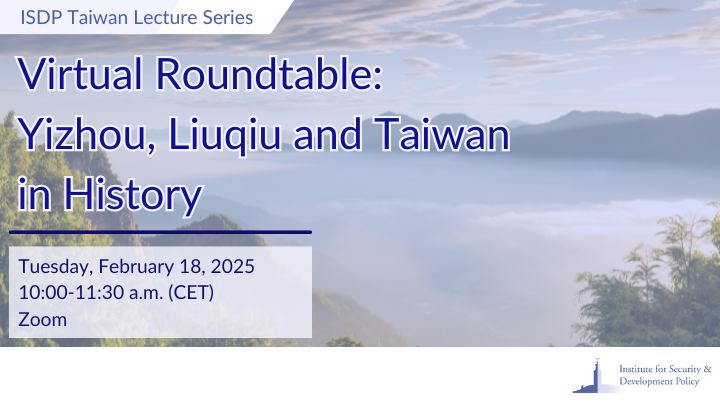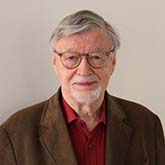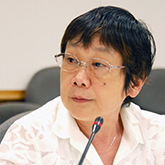Taiwan Lecture Series – Virtual Roundtable: Yizhou, Liuqiu and Taiwan in History

Yizhou and Liuqiu were ancient islands east of China’s modern Zhejiang and Fujian provinces. They may be names unfamiliar to a broader audience. However, they are central to an academic debate about Taiwan’s historical alignment. Competing historical interpretations have identified these two islands as corresponding to Taiwan or as part of the Ryukyu islands. This question is still relevant today as these two islands appear at the beginning of the People’s Republic of China’s White Paper concerning unification with Taiwan, stating that “Taiwan has been part of China since ancient times; its ancient names are Yizhou and Liuqiu”.
In their article “Yizhou 夷洲’ and ‘Liuqiu 流求’ in Historical Chinese Texts: International Relations on the Northeast Asian Seas (3rd-17th Centuries)”, Professor Lin Man-houng and co-author Huang Yi-chen have advanced this long-standing academic debate. Through the comprehensive use of electronic databases, their findings indicate that Yizhou and Liuqiu do not correspond to ancient Taiwan. Instead, they were more likely to be part of the Ryukyu Islands. The entrepot position Ryukyu assumed up to the 14th century on the East Asian seas was crucial for establishing the Ryukyu Kingdom’s golden period from that century to the 16th century. Likely, Taiwan’s central position by 1945 on the East Asian seas was vital for the relocation of the Republic of China to this island afterwards.
Join ISDP’s Stockholm Taiwan Center for a virtual roundtable discussion chaired by Professor Torbjörn Lodén. In the online event, Professor Lin Man-houng will present her article sharing insights with the audience. After the presentation, the article’s findings and their relevance for academia and policymaking will be discussed among the participants and culminate in an open Q&A with the audience tuning in.
You can read the article here.
Chair:
 Professor Torbjörn Lodén 罗多弼, born in 1947, was a Professor of Chinese language and culture at Stockholm University 1990-2014. He has a B.A. degree in Russian and philosophy from Stockholm University (1968), and after that he took up his Chinese studies, first in Stockholm (1968-69) and later at the Chinese University of Hong Kong (1970-71). From 1973 to 1976 he served as the Swedish Cultural Attaché at the Swedish Embassy in Beijing. In 1990, he obtained a Ph.D. degree in Sinology in Stockholm. In the 1980’s he set up, together with Dr. Bert Edström, Senior Fellow at ISDP, the first East Asian Studies Program at Stockholm University. He served as the Director of the Centre for Pacific Asia Studies at Stockholm University 1998-2001; as a research fellow at City University of Hong Kong 2003-2004; and as a visiting Professor at the same university 2011-2014. He is a member of the Royal Swedish Academy of Letters, History and Antiquities.
Professor Torbjörn Lodén 罗多弼, born in 1947, was a Professor of Chinese language and culture at Stockholm University 1990-2014. He has a B.A. degree in Russian and philosophy from Stockholm University (1968), and after that he took up his Chinese studies, first in Stockholm (1968-69) and later at the Chinese University of Hong Kong (1970-71). From 1973 to 1976 he served as the Swedish Cultural Attaché at the Swedish Embassy in Beijing. In 1990, he obtained a Ph.D. degree in Sinology in Stockholm. In the 1980’s he set up, together with Dr. Bert Edström, Senior Fellow at ISDP, the first East Asian Studies Program at Stockholm University. He served as the Director of the Centre for Pacific Asia Studies at Stockholm University 1998-2001; as a research fellow at City University of Hong Kong 2003-2004; and as a visiting Professor at the same university 2011-2014. He is a member of the Royal Swedish Academy of Letters, History and Antiquities.
Speakers:
 Man-houng Lin was born in Taiwan in 1951. She was primarily educated in Taiwan and received her Ph.D. in History and East Asian Languages from Harvard University in 1989. Lin has been a Research Fellow at the Institute of Modern History, Academia Sinica, since 1990 and a Professor at the Department of History, National Taiwan Normal University since 1991. In 2001 and 2004, she was a visiting professor at Waseda University and Kyoto University. From 2008 to 2010, she was the President of the Republic of China (Taiwan)’s Academia Historica. In 2021, she retired and became an adjunct research fellow at the Institute of Modern History, Academia Sinica. Lin’s main area of research focuses on Treaty ports and Modern China, Native opium of late Qing China, Currency crisis and early nineteenth-century China, Various empires and Taiwanese merchants’ great East Asian overseas economic networks, 1860-1961, as well as Asia-Pacific World and Treaties for Taiwan, Senkaku-Diaoyutai, and the South China Sea. Her website is available here.
Man-houng Lin was born in Taiwan in 1951. She was primarily educated in Taiwan and received her Ph.D. in History and East Asian Languages from Harvard University in 1989. Lin has been a Research Fellow at the Institute of Modern History, Academia Sinica, since 1990 and a Professor at the Department of History, National Taiwan Normal University since 1991. In 2001 and 2004, she was a visiting professor at Waseda University and Kyoto University. From 2008 to 2010, she was the President of the Republic of China (Taiwan)’s Academia Historica. In 2021, she retired and became an adjunct research fellow at the Institute of Modern History, Academia Sinica. Lin’s main area of research focuses on Treaty ports and Modern China, Native opium of late Qing China, Currency crisis and early nineteenth-century China, Various empires and Taiwanese merchants’ great East Asian overseas economic networks, 1860-1961, as well as Asia-Pacific World and Treaties for Taiwan, Senkaku-Diaoyutai, and the South China Sea. Her website is available here.
 Evan Dawley is an Associate Professor of History at Goucher College, where he has taught since 2013, and he previously worked in the Office of the Historian at the U.S. Department of State. He completed his PhD in History at Harvard University in 2006. His primary research interests relate to modern East Asian history, with particular attention to the histories of Taiwan, China, and Japan, as well as identity formation, imperialism, and international/transnational history. His first monograph, Becoming Taiwanese: Ethnogenesis in a Colonial City, 1880s-1950s, was published in 2019 by the Harvard Asia Center Press. His second book, A Short History of Taiwan, is forthcoming from Reaktion Books. He has co-edited The Decade of the Great War: Japan and the Wider World in the 1910s, with Tosh Minohara and Tze-ki Hon (Brill, 2014), and is co-editor of Beyond Versailles: The 1919 Moment in East Asia, with Tosh Minohara (Lexington Books, 2021). His current research project, titled “China, Chinese Abroad, and the Global Construction of the Modern Nation-State,” explores the ongoing creation of Chinese identities in the context of relations between the ROC government and communities of Chinese and Taiwanese abroad, and interactions with foreign governments around these communities, from the 1920s to the 1970s.
Evan Dawley is an Associate Professor of History at Goucher College, where he has taught since 2013, and he previously worked in the Office of the Historian at the U.S. Department of State. He completed his PhD in History at Harvard University in 2006. His primary research interests relate to modern East Asian history, with particular attention to the histories of Taiwan, China, and Japan, as well as identity formation, imperialism, and international/transnational history. His first monograph, Becoming Taiwanese: Ethnogenesis in a Colonial City, 1880s-1950s, was published in 2019 by the Harvard Asia Center Press. His second book, A Short History of Taiwan, is forthcoming from Reaktion Books. He has co-edited The Decade of the Great War: Japan and the Wider World in the 1910s, with Tosh Minohara and Tze-ki Hon (Brill, 2014), and is co-editor of Beyond Versailles: The 1919 Moment in East Asia, with Tosh Minohara (Lexington Books, 2021). His current research project, titled “China, Chinese Abroad, and the Global Construction of the Modern Nation-State,” explores the ongoing creation of Chinese identities in the context of relations between the ROC government and communities of Chinese and Taiwanese abroad, and interactions with foreign governments around these communities, from the 1920s to the 1970s.
 Agust Börjesson is the Acting Head of the Stockholm Taiwan Center and a Research Fellow at the Institute for Security and Development Policy’s (ISDP) Asia program. He holds a bachelor’s degree in Chinese language and a master’s degree in Asian studies from Lund University in Sweden. He has also studied Chinese language at Beijing Foreign Studies University as well as international relations at Tsinghua University in China.
Agust Börjesson is the Acting Head of the Stockholm Taiwan Center and a Research Fellow at the Institute for Security and Development Policy’s (ISDP) Asia program. He holds a bachelor’s degree in Chinese language and a master’s degree in Asian studies from Lund University in Sweden. He has also studied Chinese language at Beijing Foreign Studies University as well as international relations at Tsinghua University in China.